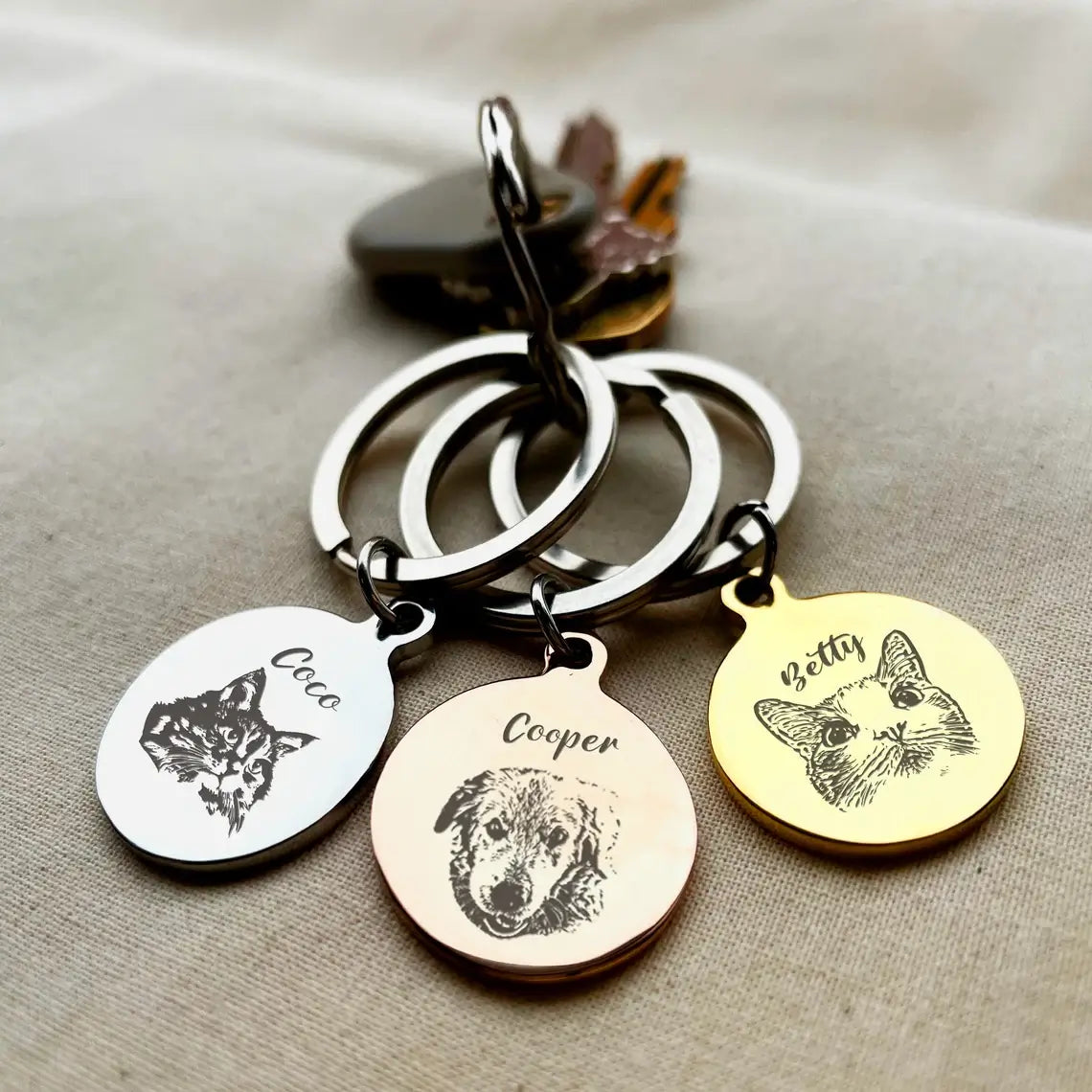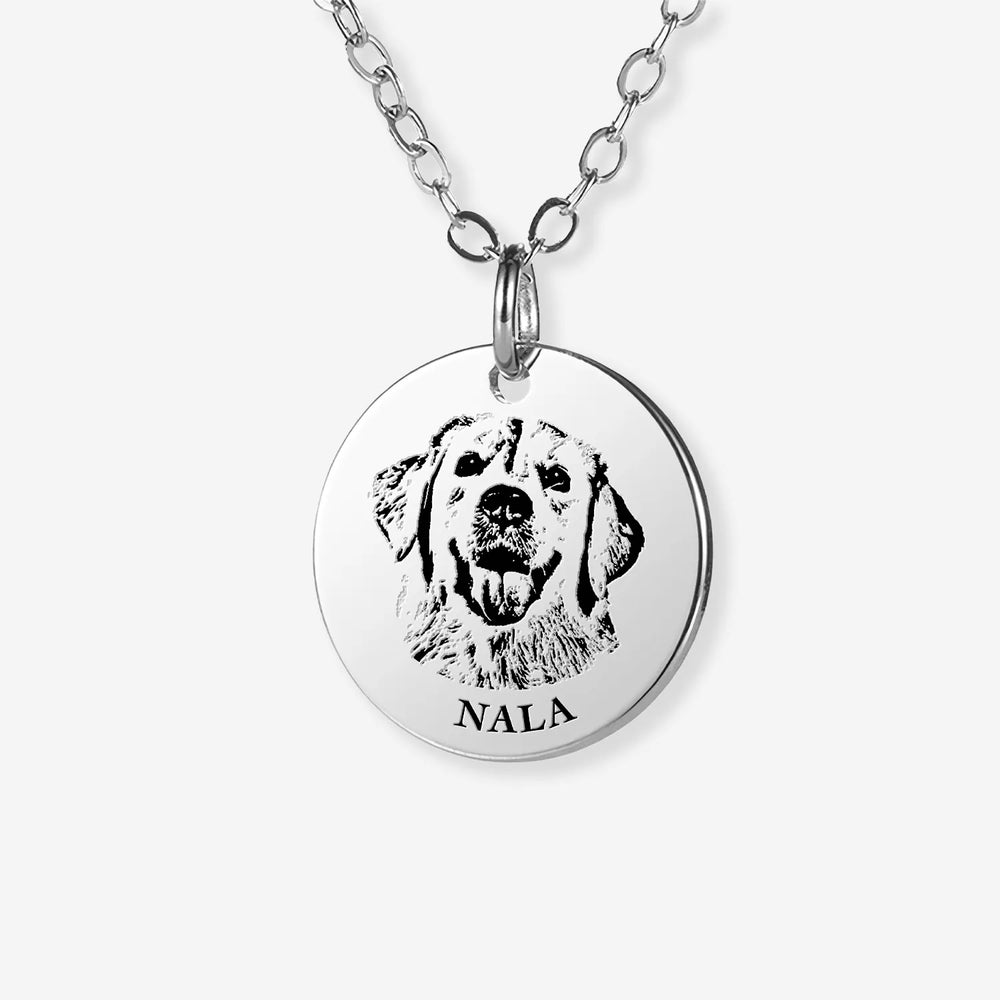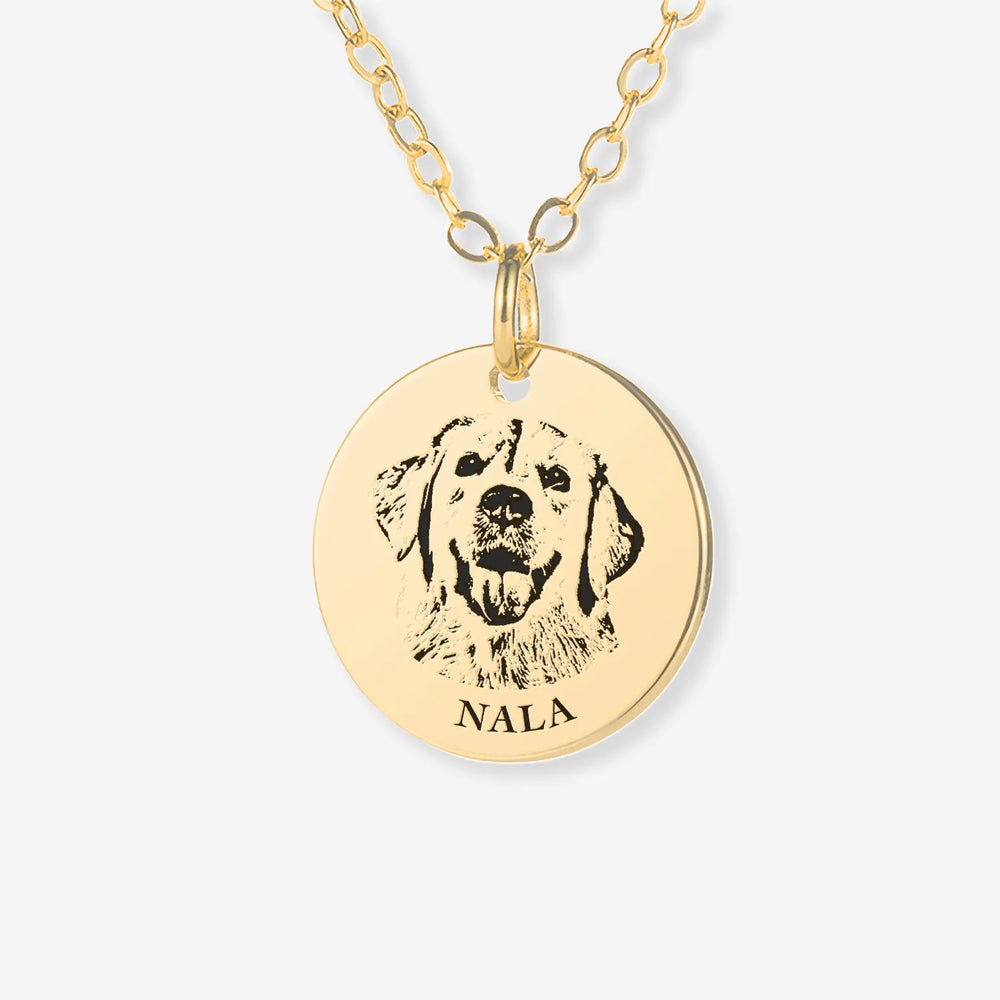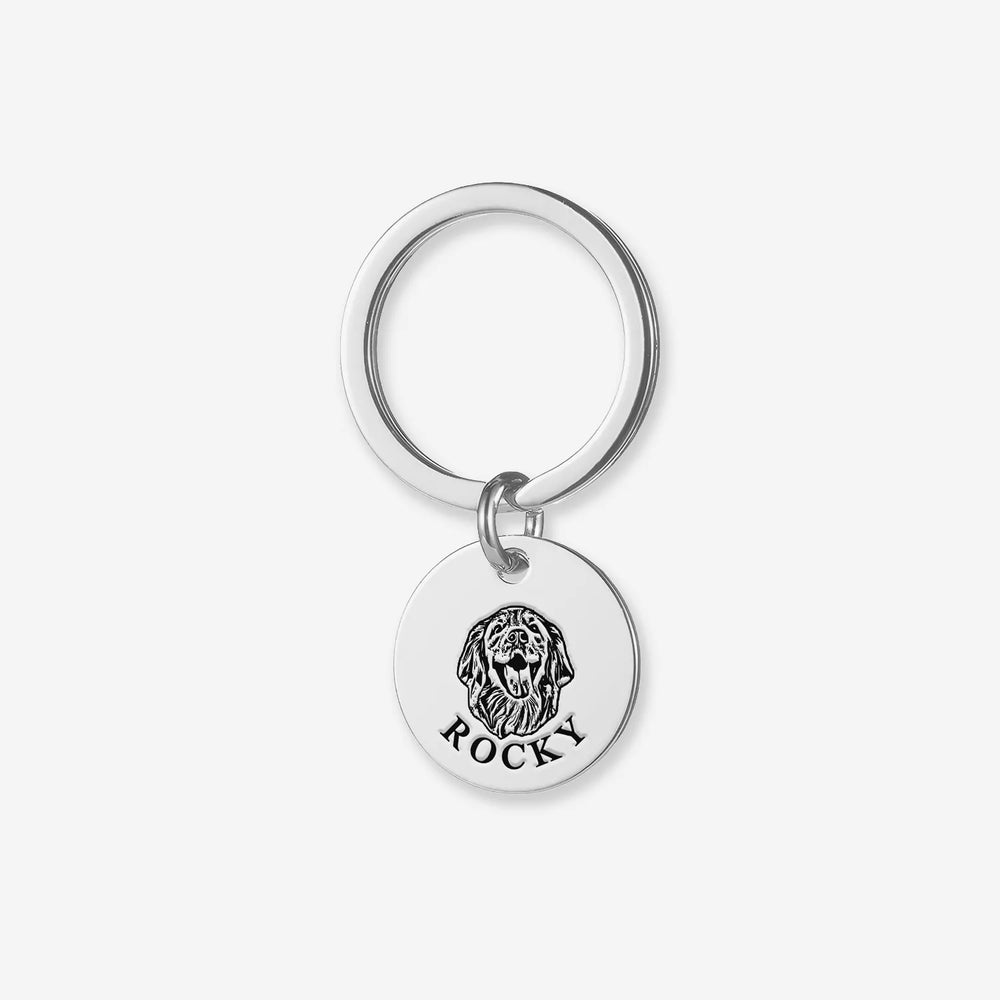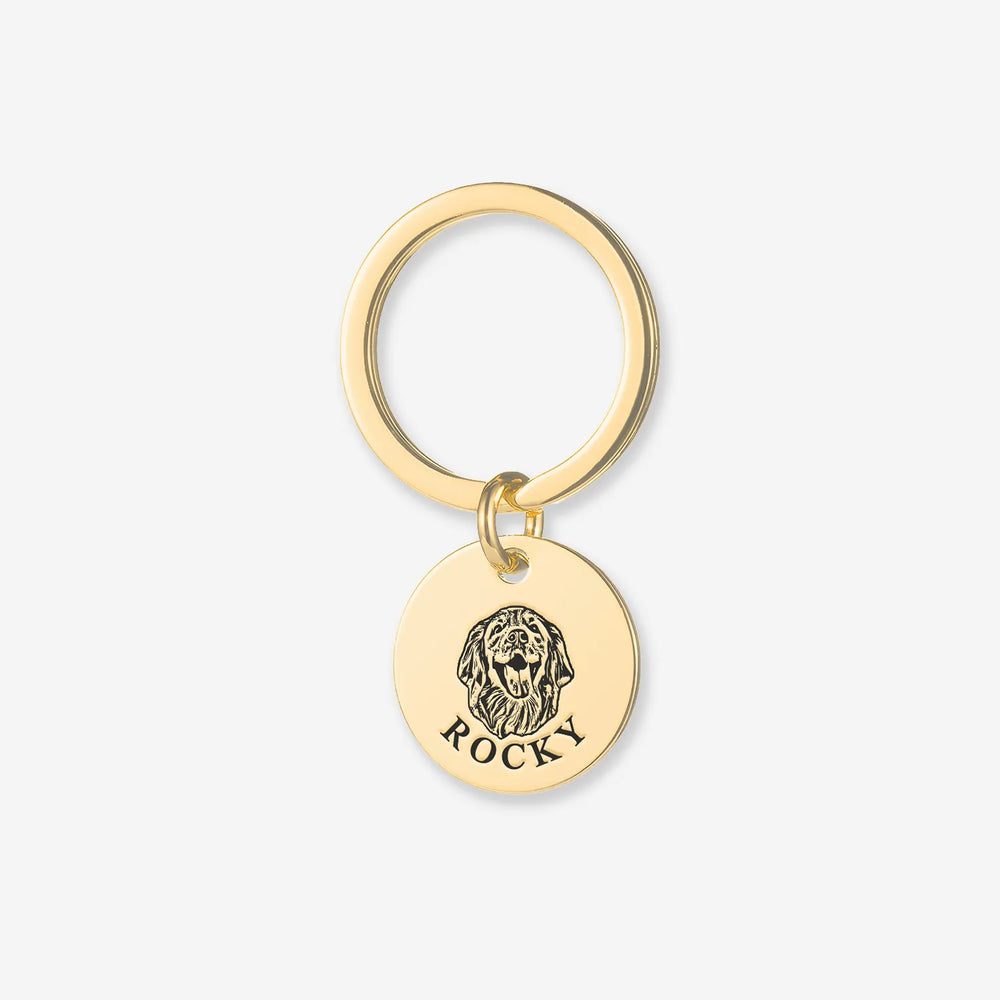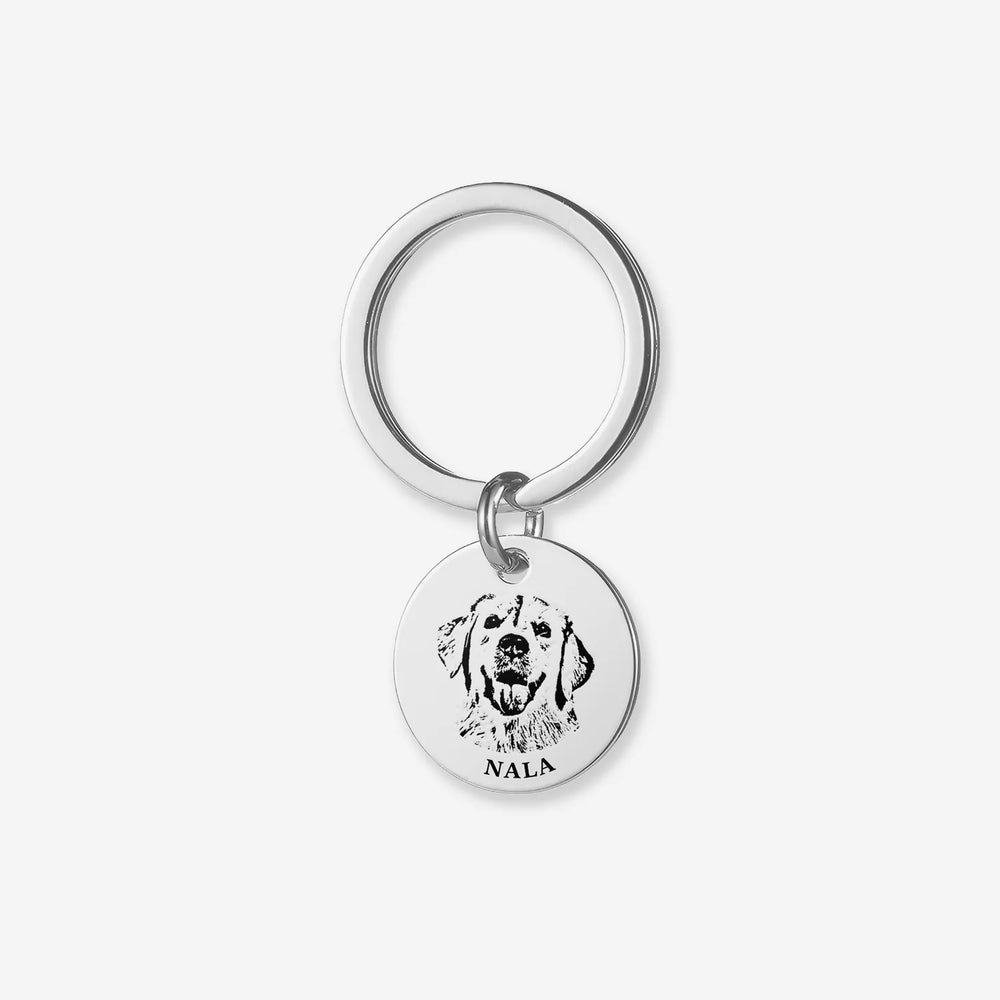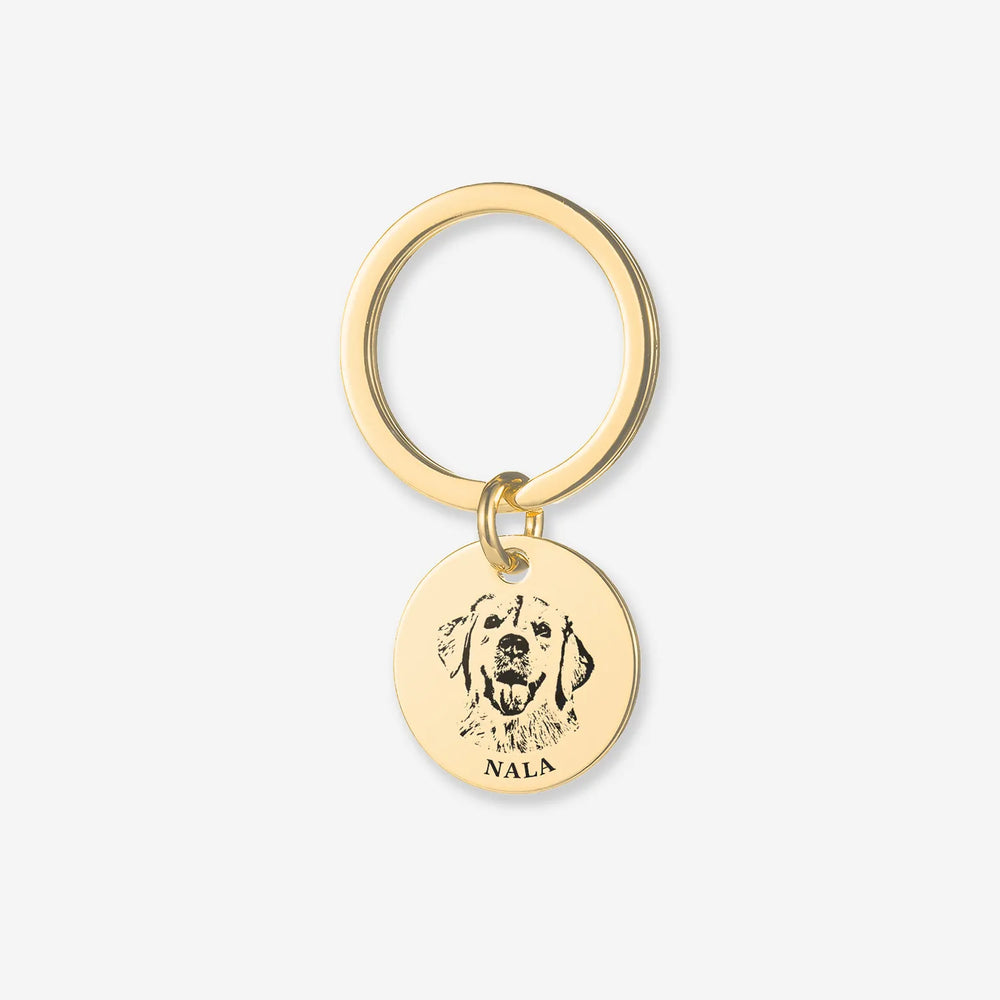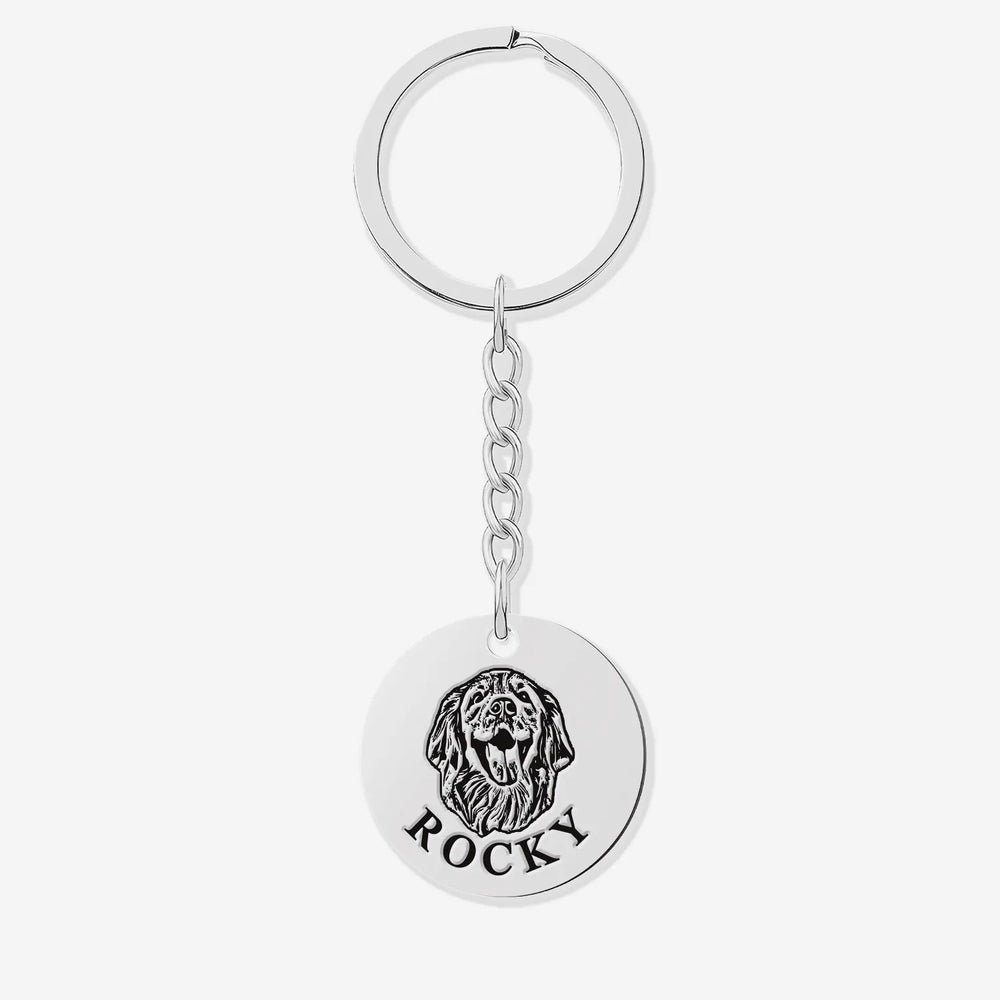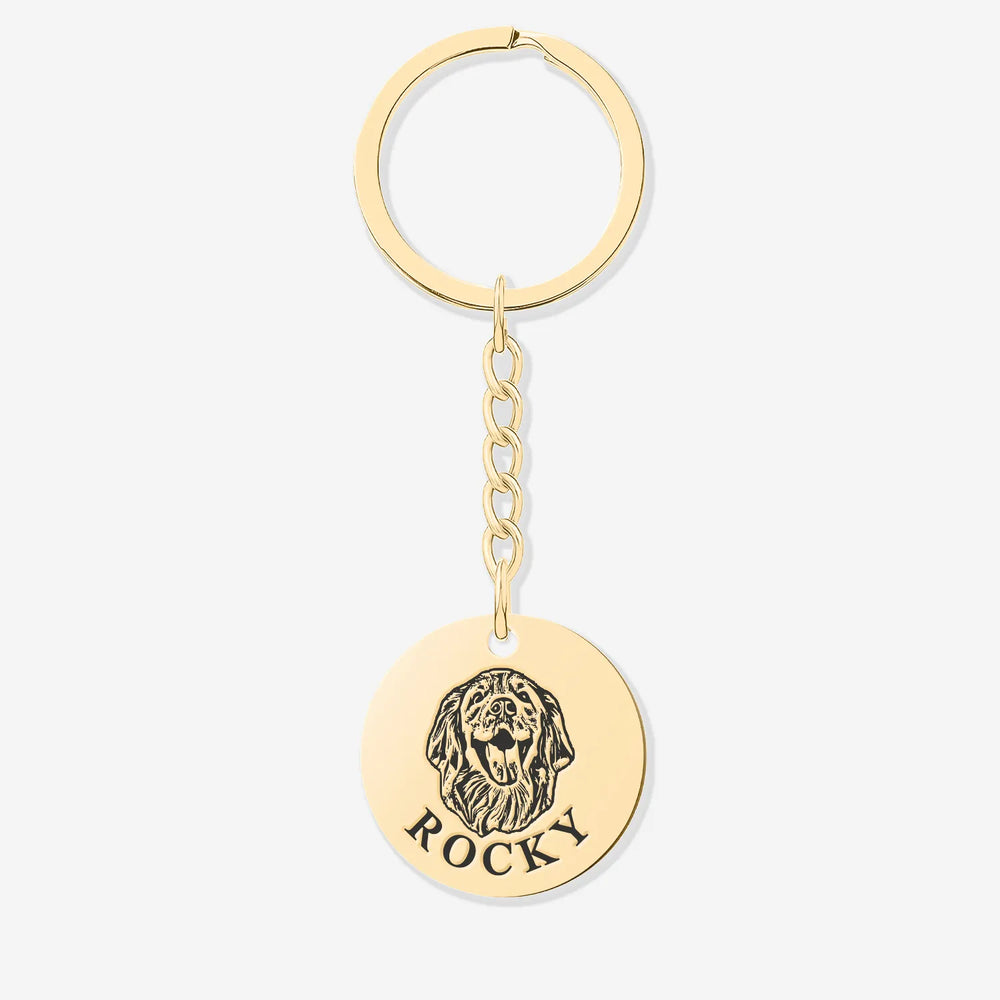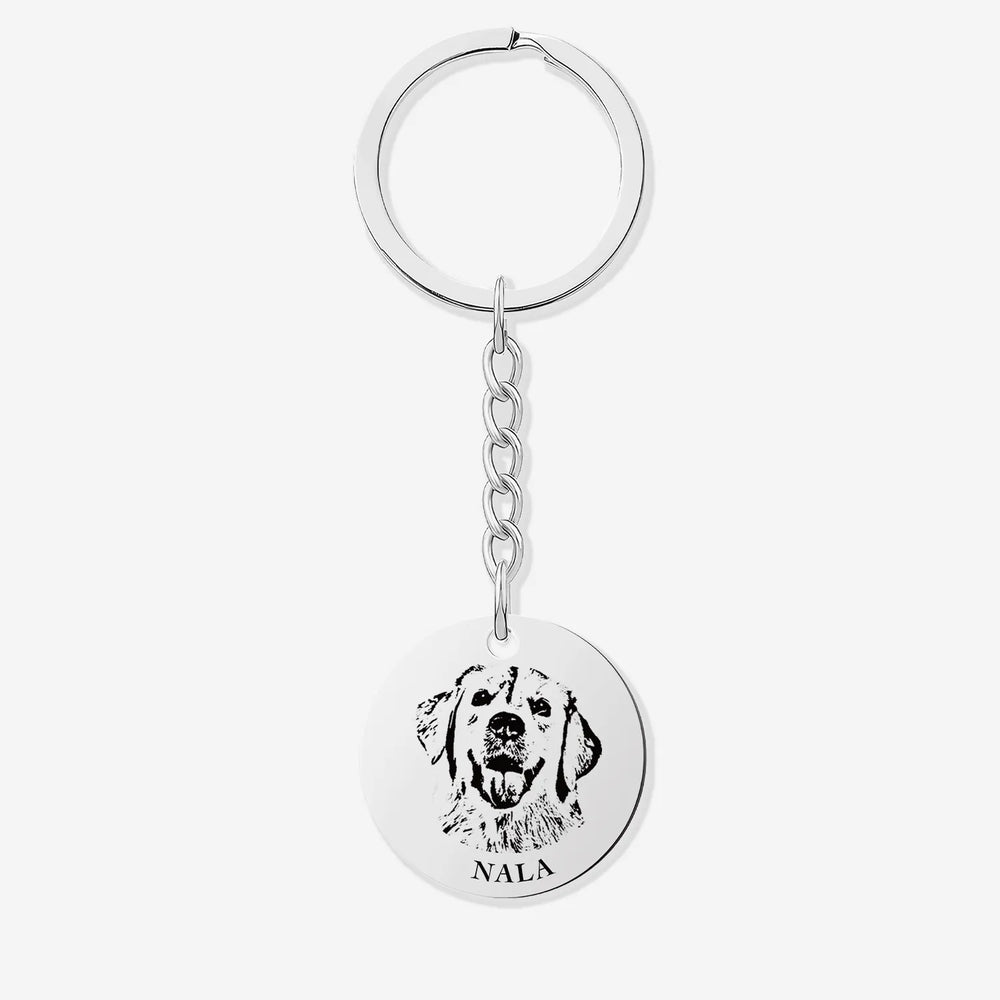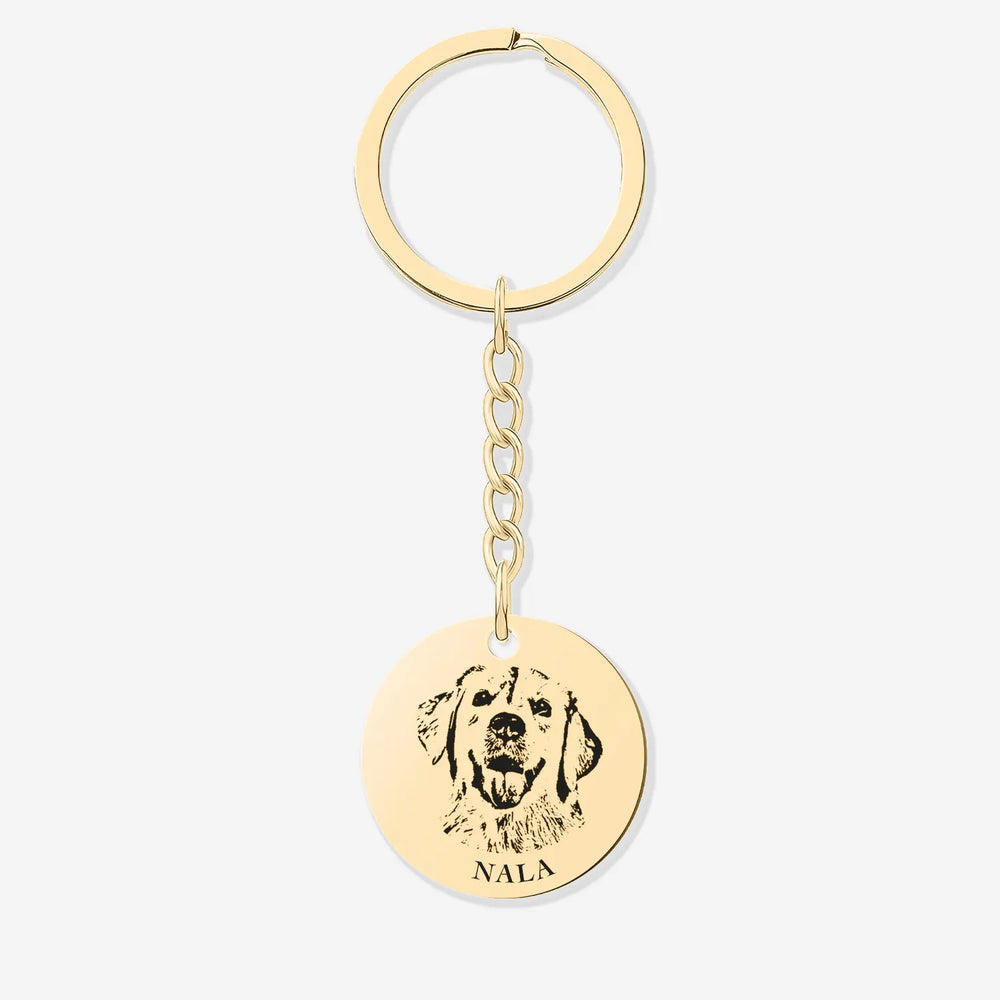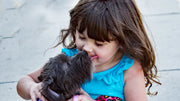Buy One, Get One FREE
Why Chinese Crested Dogs Are So Popular

Introduction to the Chinese Crested Dog
The Chinese Crested Dog earned its name due to the crest of hair on its head, which resembles the hats worn by officials during the Qing Dynasty. Also known as the Chinese Hairless Dog or Half-Haired Dog, it is one of the rare hairless dog breeds in the world. Despite its name, this breed does not originate from China. Initially, it was believed to come from South America. Although the breed is now found worldwide, pinpointing its exact origin remains challenging.
First introduced to the United States in 1975, the Chinese Crested Dog belongs to the toy dog category. It has a small stature, with a height typically under 33 cm. Its skin color varies, including patterns like black with blue patches or pink with coffee-colored spots. This breed is clean, non-shedding, and affectionate, making it an excellent companion for families.

Judy and Her Dog Face Necklace
Chinese Crested Dog Basic Information
| Shoulder height | 23cm-33cm | Weight | 2kg-5.5kg |
| Lifespan | 10-15 years | Habits | Strong adaptability |
| Food preference | Appropriate feed | Purpose | Toy dog, companion dog |
History of the Chinese Crested Dog
For centuries, Chinese sailors carried these small dogs on their voyages, often selling puppies to merchants at ports. During plagues, the Chinese Crested Dog helped control pests that spread diseases. Even today, you can find them in many historic port cities worldwide.
In the 16th century, Spanish explorers documented these dogs in Mexico and other parts of Central and South America. During the 18th and 19th centuries, British, French, and Portuguese explorers noted their presence across Africa and Asia. Missionaries accompanying these expeditions also recorded sightings of the breed in various countries. By the mid-19th century, Chinese Crested Dogs appeared in many European paintings.
On February 1, 1991, the American Kennel Club officially registered the Chinese Crested Dog. By April 1 of the same year, the breed began participating in dog shows hosted by the organization.
Ideal Living Conditions
Although the Chinese Crested Dog lacks significant fur, it adapts well to both warm and cold climates. Research shows that it has a unique internal heating system, with its central nervous system regulating its body temperature. Its body temperature is typically 2°C higher than a human's, and it rises slightly after eating.
This breed thrives in urban settings and gets along well with children. However, it is sensitive to extreme temperatures. While it doesn’t require frequent grooming, proper care for its skin is essential.
Behavioral Traits of the Chinese Crested Dog
One distinctive feature of the Chinese Crested Dog is its sweat glands, which allow it to cool down by sweating rather than panting like most other dogs. Unlike furry breeds that rely on tongue-based cooling, the Chinese Crested Dog’s ability to sweat makes it more adaptable to temperature changes.
Its skin, while soft and quick to heal, is thicker and rougher than that of long-haired dogs. With proper care, its skin remains in excellent condition. Another unique characteristic is its ability to use its front paws to grip objects, mimicking human hand movements.
Intelligence and Loyalty
Ranked 61st among dog breeds in terms of intelligence, the Chinese Crested Dog may not be the smartest, but it is incredibly loyal. This breed forms deep emotional bonds with its owners, making it a rewarding companion. Its affectionate nature has won over many dog lovers worldwide.
Why People Love the Chinese Crested Dog

Chinese Crested Dog Pet Index
| Exercise needs | Not very fond of exercise, prefers to stay at home, needs to ensure daily walks |
| Clinginess index | Fully attached to family, cannot tolerate long-term loneliness, may cause separation anxiety |
| Barking index | Rarely barks, most of the time very quiet |
| Trainability | Be more patient, the dog can find the connection between command-action-result |
| Shedding index | Non-shedding breed, just clean regularly |
1. Easy Grooming
The Chinese Crested Dog has minimal fur, limited to its head and tail, making grooming effortless. Owners don’t need to worry about shedding. Regular cleaning and occasional baths keep this breed tidy and odor-free.
2. Minimal Odor
Thanks to its lack of fur, the Chinese Crested Dog doesn’t trap sweat, preventing unpleasant odors. Combined with its natural cleanliness, this breed is virtually odorless.
3. Quiet and Calm Nature
Despite being a small dog, the Chinese Crested Dog is remarkably quiet and rarely barks. This makes it an ideal pet for apartment living, as owners don’t need to worry about noise complaints from neighbors.
Tips for Caring for a Chinese Crested Dog

Protecting Its Skin
Since the Chinese Crested Dog’s skin is exposed, it is prone to sunburn in summer and needs warmth in winter. Use pet-friendly skincare products to protect its skin, especially during harsh weather.
Avoid Overexertion
This breed has a low activity level and delicate bones, which are common traits among small dogs. Avoid strenuous exercise to prevent injuries. Instead, opt for light activities or interactive games at home. Reward your dog with healthy treats, such as natural snacks made from goat’s milk or chicken breast, to encourage good behavior and strengthen your bond.
Maintain a Balanced Diet
Although the Chinese Crested Dog doesn’t eat much, its exposed skin makes it more susceptible to skin conditions. To reduce the risk of skin issues, feed it a diet rich in nutrients and omega-3 fatty acids, such as fish oil-infused dog food.
Fun Facts: The Unique Appeal of the Chinese Crested Dog
Although often labeled as one of the world’s ugliest dogs, the Chinese Crested Dog boasts a striking, unconventional appearance. Its edgy, punk-like look exudes a unique charm that appeals to many pet lovers. However, its lack of fur leaves it vulnerable to bacterial, fungal, and parasitic infections, so attentive care is crucial.
By incorporating these care tips and understanding its unique traits, owning a Chinese Crested Dog becomes a rewarding experience. This breed’s combination of loyalty, cleanliness, and quirky charm makes it a one-of-a-kind companion.
